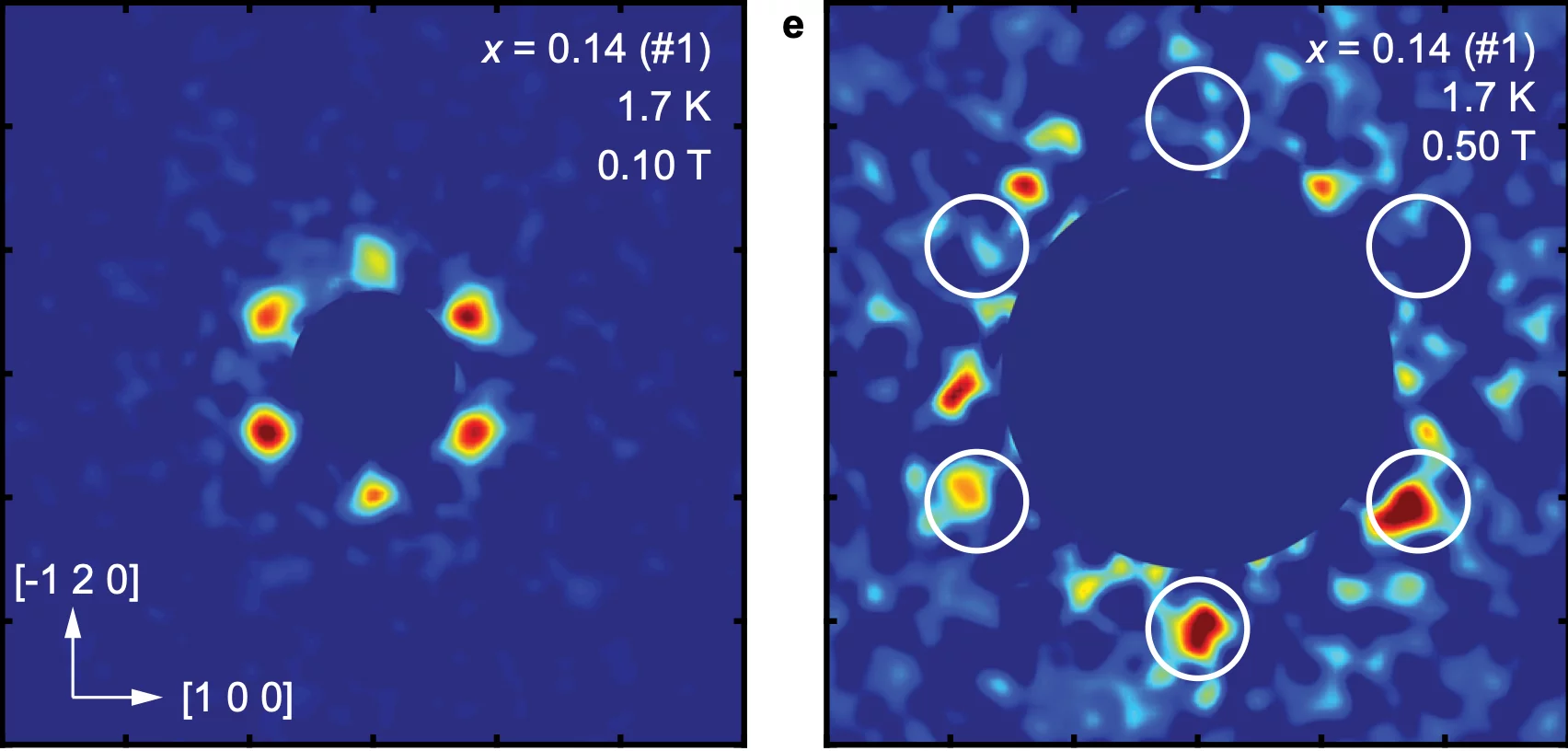A hallmark of unconventional superconductors is a complex electronic phase diagram where intertwined orders of charge-spin-lattice degrees of freedom compete and coexist. While the kagome metals such as CsV3Sb5 also exhibit complex behavior, involving coexisting charge density wave order and superconductivity, much is unclear about the microscopic origin of the superconducting pairing. We study the vortex lattice in the superconducting state of Cs(V0.86Ta0.14)3Sb5, where the Ta-doping suppresses charge order and enhances superconductivity.
Using small-angle neutron scattering, a strictly bulk probe, we show that the vortex lattice exhibits a strikingly conventional behavior. This includes a triangular symmetry with a period consistent with 2e-pairing, a field dependent scattering intensity that follows a London model, and a temperature dependence consistent with a uniform superconducting gap. Our results suggest that optimal bulk superconductivity in Cs(V1−xTax)3Sb5 arises from a conventional Bardeen-Cooper-Schrieffer electron-lattice coupling, different from spin fluctuation mediated unconventional copper- and iron-based superconductors.
Facility: SINQ
Reference: Y. Xie et al, Nature Communications 15, 6467 (2024)
Read full article: here


